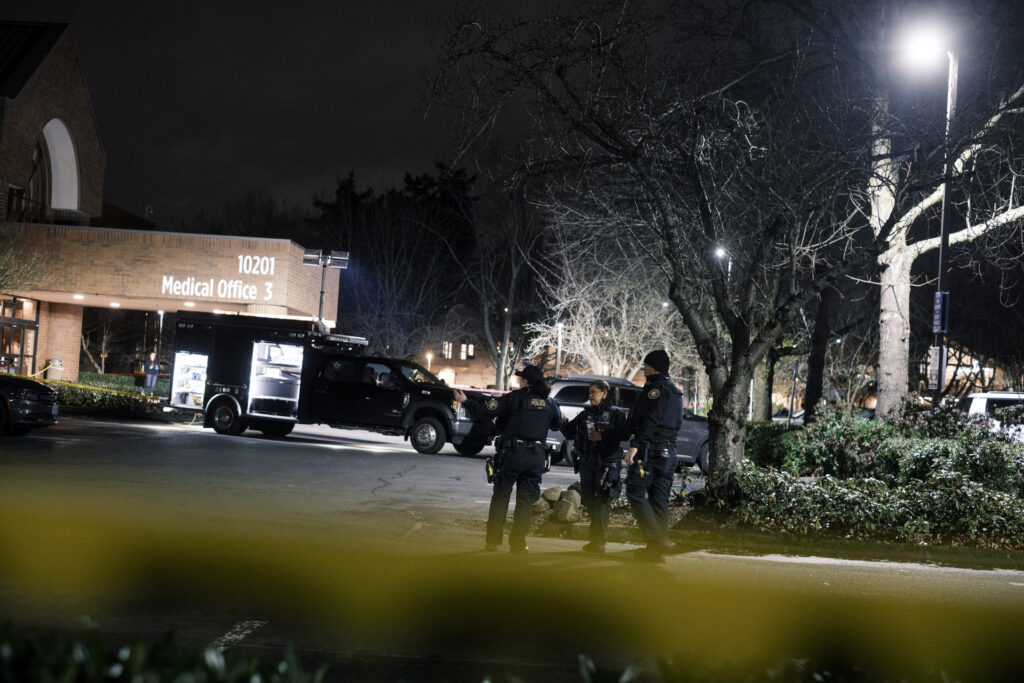Share
There is growing bipartisan opposition to a law bearing down on all Californians on July 1 that will bring “economic devastation” in the words of one Central Valley state senator.
The law attempts to force new home buyers out of cars, and into buses, vanpools, mass transit, and high-rise buildings in densely populated areas.
Listen to this article:
And, even though California is vastly different today because of the coronavirus pandemic than it was seven years ago when the legislation was passed, Gov. Gavin Newsom’s team is pushing full steam ahead to implement the law in a matter of weeks.
Many health experts say that mass urban transit is conducive to the spread of viral infections and will become less used in a post-pandemic world. Meanwhile, technology leaders such as Mark Zuckerberg say more people will work from home instead of commuting.
Gov. Jerry Brown signed Senate Bill 743, which radically changes how developer fees related to transportation are formulated, in 2013. The bill’s goal is to reduce greenhouse gas emissions.
The law abandons the past practice of basing fees on the costs of mitigating increased traffic impacts and replaces it with a Vehicle Miles Traveled formula.
However, the new formula doesn’t account for the growing popularity of hybrid and all-electric cars or the increased number of Californians working digitally from home.
The law’s critics say that it will put buying a new home out of the reach of many Californians, particularly minorities, and make the state housing crisis even worse.
(To see how Valley representatives stand on the law, go to the scorecard below in this story.)
Opponents Seek a Two-Year Delay
Opponents are urging that Gov. Newsom order a two-year delay to implementation — enough time to fix the law’s flaws.
“While this bill was enacted prior to me being elected, it is clear that this Vehicle Miles Traveled policy disproportionately impacts rural communities that do not have access to public transportation and significantly contributes to the rising cost of housing,” said state Sen. Melissa Hurtado, a Sanger Democrat.
“I support a two-year year delay and encourage our Governor and state agencies to further assess how this policy will impact Senate District 14.”
On the other side of the aisle, state Sen. Shannon Grove, a Bakersfield Republican, says that SB 743 “implementation would cause even greater economic devastation in the Central Valley.”





Newsome Administration: Deadline Stands
Kate Gordon is the director of the state Office of Planning and Research and Newsom’s senior advisor on climate. She says the law will go into effect July 1.
“There has been no change to the deadlines,” Gordon said.

“There has been no change to the deadlines. — Kate Gordon, director, state Office of Planning and Research
GV Wire also reached out to the bill’s author, Darrell Steinberg, to ask about implementing the law while California is reeling economically from the pandemic. He was President pro Tempore of the Senate in 2013 and is now mayor of Sacramento.
Steinberg did not respond to questions about whether he would support a delay or whether he would introduce the bill again now.
He crafted the legislation to get an arena built for the NBA’s Sacramento Kings. The Brown administration then tacked on its plan for updating how traffic fees for new construction are calculated as the deadline for the bill’s passage neared.
Backers of SB 743 say it will help California eliminate greenhouse gases and provide more housing for those in dense cities. That’s because developers would be encouraged to build more housing in high-density cities, thus allowing more opportunities for people to live near where they work.
Ted Lamm, Research Fellow at the UC Berkeley School of Law, says: “It’s possible that the cost of mitigation will be higher now, but it’s more that the costs before mitigation went to projects like widening roads and adding new access lanes and now they will go to transit projects and other benefits.”
VMT Lawsuit Aims to Protect Minorities
Attorney Jennifer Hernandez, a self-described “Berkeley Democrat,” filed a lawsuit against SB743 on behalf of minority advocates.
“It’s about forcing people into elevator buildings and riding the bus,” Hernandez said. “It’s just a doctrine. It’s a doctrine that disparately harms those who don’t already own a home, and those are now minorities.”
Henandez said that the lawsuit awaits a response from the state.
“My belief is that if the vast majority of the affected population of these ill-conceived policies continued to be white Californians, they wouldn’t have gotten off the ground,” she said. “The reason this even has traction is because it’s aimed primarily at minority California.”
VMT Makes Housing More Expensive
On July 1, VMT will be is applied to new developments.
For instance, if a person drives to multiple places a day — work, store, soccer practice, etc. — all of those miles are counted up. Then the VMT fee is calculated for the development. The way to offset all of those miles? Bus passes and mass transit passes.
“It’ll make housing more expensive,” said Mike Prandini of the Building Industry of Fresno-Madera Counties. “The problem is that they want to force residents into higher density living.”
Fresno COG’s has calculated a 16 vehicles miles traveled average for development in Clovis. Going forward, the VMT goal for Clovis will be 14 VMT. That might sound easily attainable, but it comes at a cost.
In theory, Prandini said, a developer might be asked to subsidize vanpooling for residents of a new housing tract or apartment complex. The cost to do that for a 20-unit project, by Prandini’s calculations, would be $460,000 over 30 years — or $23,000 a unit. And, while the developer bears the costs upfront, it is passed on to homebuyers and renters.
Keith Bergthold is a former Fresno assistant planning director who oversaw the city’s 2035 general plan update. Now the executive director of Fresno Metro Ministry, he is part of the “Better Blackstone” initiative seeking to rebuild Fresno’s central commercial corridor.
“It has some unintended consequences and uneven impacts,” says Bergthold. “I feel like delaying it a bit, and giving it a little more balanced input from our rural regions would be appropriate and meaningful. … I want to be careful that we don’t in any way detract from a vibrant economy.”
Watch: How VMT Is Calculated
Which Lawmakers Want Law Delayed?
So far, several Central Valley lawmakers support a delay of at least two years. But when GV Wire attempted to pin others down, they either didn’t respond or declined to say their position on a delay.
GV Wire got no responses from Esmeralda Soria, Paul Caprioligio, and Lee Brand. Several others declined to take a position, including Assemblymember Joaquin Arambula, Lynne Ashbeck, Bob Whalen, Miguel Arias, and Nelson Esparza.

“The Governor with a stroke of a pen could put this off for a couple of years.”–Assembly Member Jim Patterson (R-Fresno)
BizFed Central Valley an alliance of 56 associations representing 20,000 businesses and employing 300,000 people, sent Governor Newsom a letter asking for a delay. Several Valley lawmakers signed the letter.

“Implementation would cause even greater economic devastation in the Central Valley.”–Republican Senate Leader Shannon Grove
“I think that lawmakers are content to punt it over to the bureaucracy for implementation,” says BizFed Executive Director Clint Olivier. “That’s what’s going to happen on July 1st. I think they weren’t there when this came into being.”
(Disclosure: Darius Assemi, publisher of GV Wire and president/CEO of Granville Homes, is a past board chair of Bizfed Central Valley.)
The Fresno County Board of Supervisors on Tuesday, May 26, unanimously passed a resolution supporting a two-year delay of VMT implementation.
Interestingly, provisions in the VMT law contradict what Newsom has forced Californians to do during the pandemic: social distancing, and encouraging work from home.
According to Assembly Member Jim Patterson (R-Fresno), “If we can put enough pressure, and explain to the Governor the rationale behind why we have such a difficulty with this, then the Governor with a stroke of a pen could put this off for a couple of years.”
We are asking @GavinNewsom to delay/regionalize VMT implementation. This law unfairly impacts rural counties & could add $40,000 in cost to each new house built. In the midst of a pandemic/housing crisis we must protect the American dream of owning a home. @ClintOlivier @BizFedCV pic.twitter.com/37bycuwcD3
— Andreas Borgeas (@SenatorBorgeas) May 26, 2020
Lawmakers Formally Ask Governor for a Delay
Several Valley lawmakers have written letters to Newsom imploring that he delay VMT implementation out of fear it will reap unintended consequences.
“Implementation would cause even greater economic devastation in the Central Valley,” writes Republican Senate Leader Shannon Grove in her letter to the Governor. “As we have seen in past economic crises, our rural communities are often the last to recover, so if the current implementation timeline is upheld, the tail on this recovery will undoubtedly lengthen even further.”
“An unchanged SB 743 regime strips our most disadvantaged, underrepresented communities of their hope, ” wrote Republican Assembly Member Devon Mathis of Visalia.
Said Mathis: “I would support delaying the VMT altogether. COVID-19 has devastated our State as a whole. Right now people are worried about how to pay their bills, feed their families, and just plain keep afloat. We don’t need to be putting more pressure on people when they are already being hit so hard. Truthfully, for most people, this may be the straw that breaks their back.”

“Truthfully, for most people this may be the straw that breaks their back.”–Devon Mathis, (R) Visalia
Mathis’ opponent, Democrat Drew Phelps said, “I am undoubtedly in favor of both a delay in implementation of the VMT standard and a more regionalized approach which allows smaller rural communities to continue to grow responsibly without undue burden. Just as with so many other policy items, one size does not fit all in this instance.”
(Disclosure: Drew Phelps works in land use and project management for Granville Homes.)
Draft Screening Tool: VMT Hits Several Valley Areas Very Hard
The Fresno Council of Governments created a “draft” tool for communities to use as a guide to prep for VMT implementation.
- Red = High VMT (expensive to mitigate)
- Yellow = Medium VMT (some expense to mitigate)
- Green = Low VMT (no additional expense to mitigate, but that could change depending on future development)
GV Wire applied the COG tool to several lawmakers’ district maps.
Assemblymember Dr. Joaquin Arambula (D-Fresno) represents District 31. The communities of Coalinga, Mendota, and Kerman fall into the red — meaning expensive to mitigate costs. GV Wire has asked Dr. Arambula several times if he’d support a delay of SB743, but his office consistently says he has “no response.”

Senator Melissa Hurtado (D-Sanger) represents several communities expected to be hit hard by VMT. Those include Sanger, Parlier, Orange Cove, and Dinuba.
“While this bill was enacted prior to me being elected, it is clear that this Vehicle Miles Traveled policy disproportionately impacts rural communities that do not have access to public transportation and significantly contributes to the rising cost of housing,” Hurtado said. “I support a two-year delay and encourage our Governor and state agencies to further assess how this policy will impact Senate District 14.”

Senator Anna Caballero (D-Salinas) represents several areas that fall into the red VMT category: Mendota, Coalinga, and Hanford. A small portion of the Mendota area falls into the green, likely because it’s an area near jobs rather than mass transit.
“As its implementation nears, I have been talking to builders in my district and across the state, and have learned how SB 743 risks a disproportionate negative impact on poor and rural communities,” Caballero said. “Requiring VMT reduction for all housing development, regardless of whether vehicles are electric, or housing is part of a commercial redevelopment, clearly has some unintended consequences, including increasing housing prices.”

Here are some other Central Valley Districts that mostly fall outside of the Fresno Council of Governments VMT tool. However, when other Councils of Governments put their calculations online, many of the rural areas of these districts will likely look very similar to Fresno County.
Fresno Area Elected Officials Scorecard
GV Wire asked each elected member of the Fresno City Council, Clovis City Council, Fresno Board of Supervisors, Assembly, and state Senate where they stood on SB743.
“Would you support a delay (of at least two years) in implementing SB743 given the current pandemic?”
Here is a graphic breakdown of the answers and a sampling of the responses received:
District 2 Fresno County Supervisor Steve Brandau says, “In light of COVID-19 and its effect on the middle class and their abilities to purchase homes and other products, I’m supporting a two-year moratorium on SB743 regulations. VMT especially hurts rural Central Valley Counties.”

“In light of COVID-19 and its effect on the middle class and their abilities to purchase homes and other products, I’m supporting a two-year moratorium on SB743 regulations. VMT especially hurts rural Central Valley Counties.”–District 2 Fresno County Supervisor Steve Brandau
Fresno County Supervisor Nathan Magsig says, “I believe housing costs are too high in California. Much of this is driven by fees like SB 743. I would like to see the implementation of SB 743 statewide delayed and I also would like local cities and counties to choose for themselves what impact fees are most appropriate for their region.”
“I would absolutely support a delay,” says Fresno District 2 City Council Member Mike Karbassi. “The last thing we need is to create a greater burden that will be created with its implementation. We also need to have a greater conversation about mass transit in a post COVID world.”

“I would absolutely support a delay. We also need to have a greater conversation about mass transit in a post COVID world.”–Fresno District 2 City Council Member Mike Karbassi
“At the time this legislation was passed (2013) the world was a different place,” said Fresno District 5 City Council Member Luiz Chavez. “This law should be suspended and possibly eliminated. New developments have been innovative in decreasing their carbon footprint while making homeownership more accessible to working families.”
Clovis Mayor Drew Bessinger: “I would support rescinding the legislation. I think that government using financial coercion to make people live in cities violates the liberty of its citizens.”
Clovis City Councilmember Vong Mouanoutoua, a longtime affordable housing advocate, said that SB 743 is fundamentally flawed.
“It hurts minorities because a lot of minorities are those who are poor. It’s hurting minorities from the ability to purchase a home,” Mouanoutoua said. “So, now it moves up another $30,000 to $40,000. That’s an average income of another person.”
Assemblymember Rudy Salas (D-Bakersfield): “I am happy to join my colleagues in asking the Governor to delay the implementation of Vehicle Miles Traveled amid the hardships Central Valley families are experiencing. I support streamlining CEQA to get people in homes quicker.”
Previous GV Wire Stories on VMT
(GV Wire’s David Taub contributed to this story. Graphics by Alexis DeSha, video by Jahz Tello)
Categories

Google Guys Say Bye to California



















